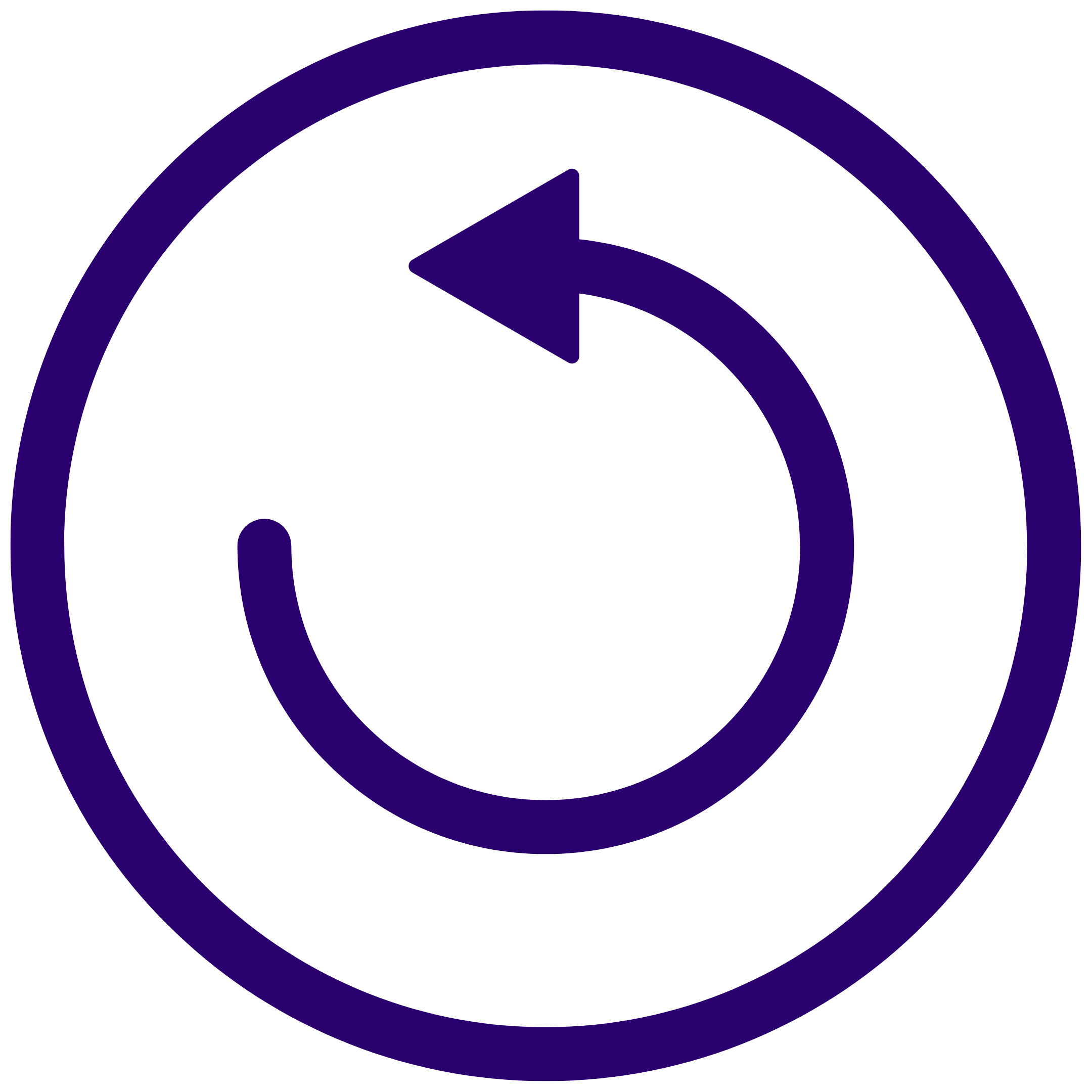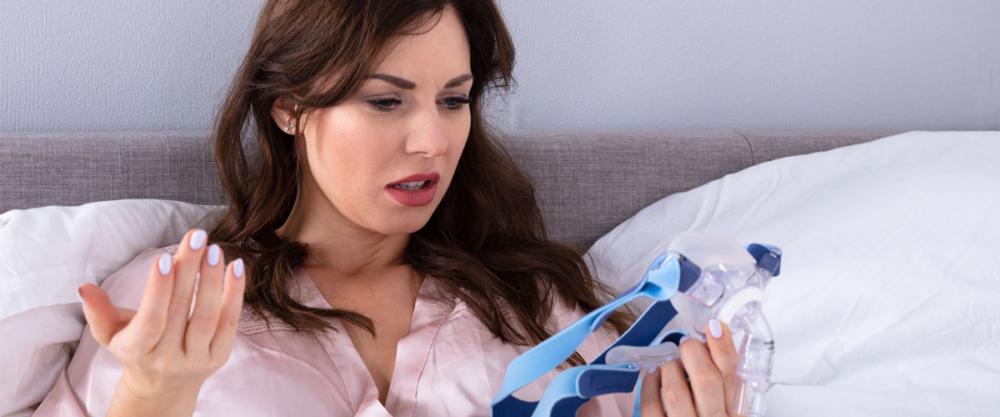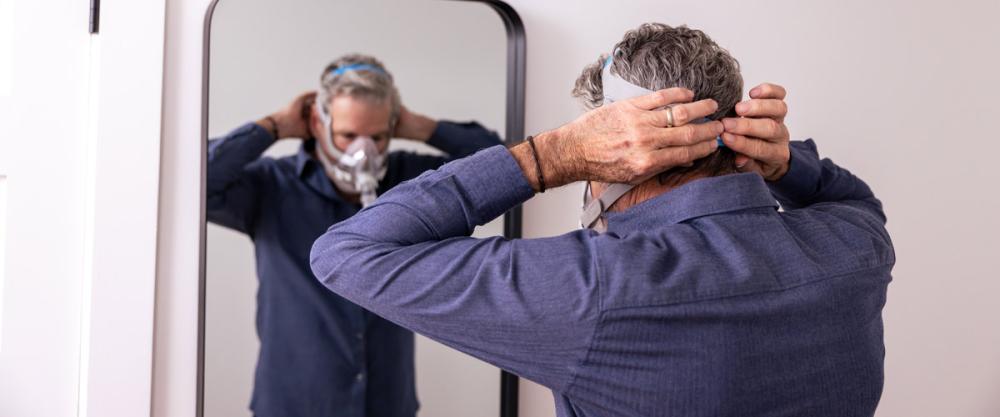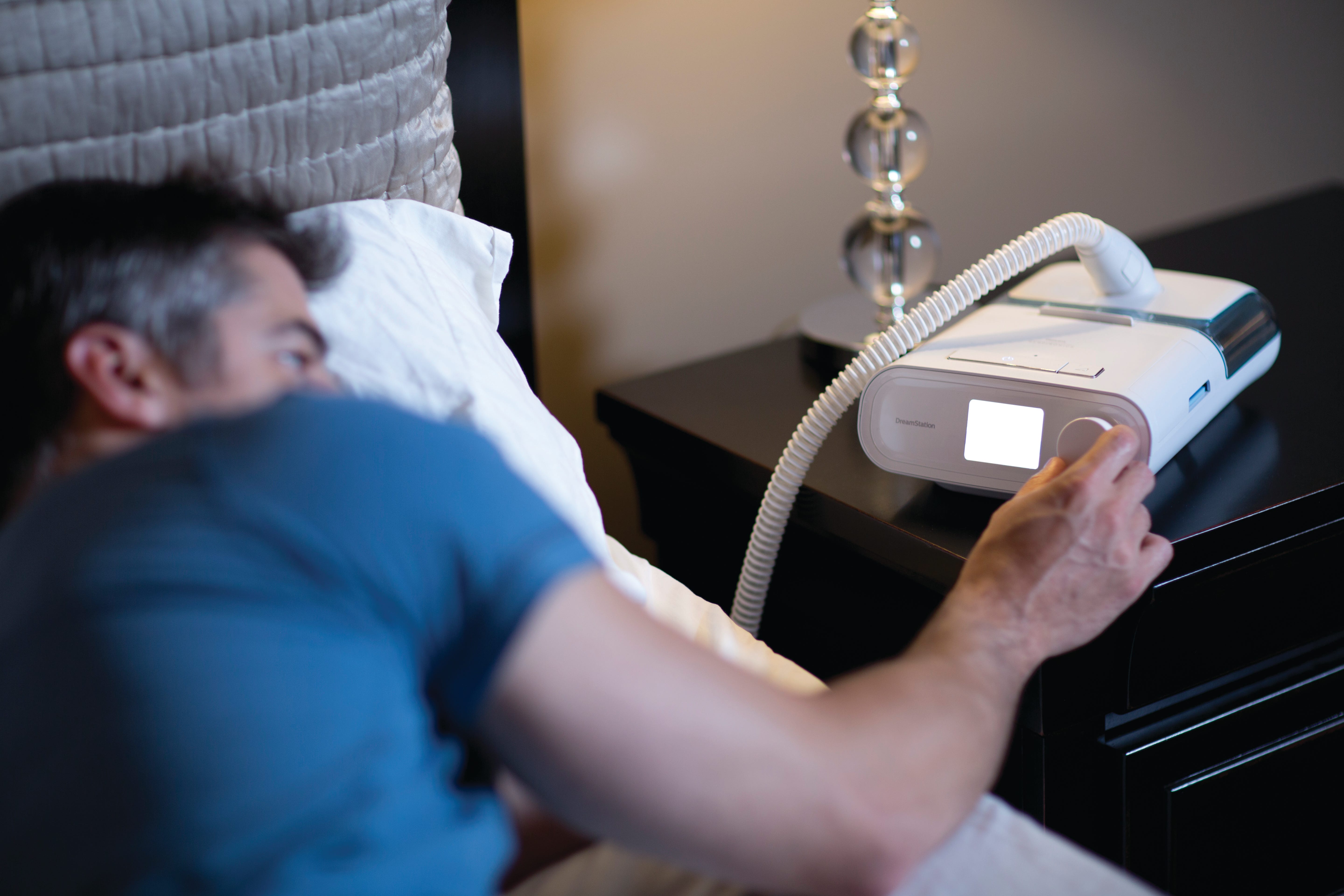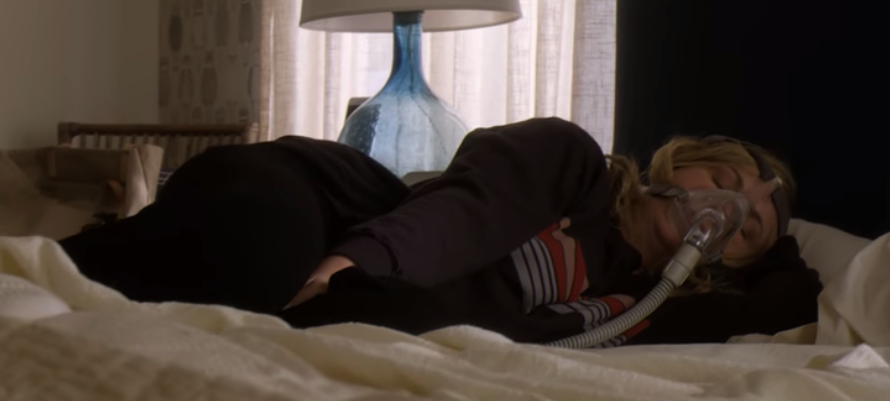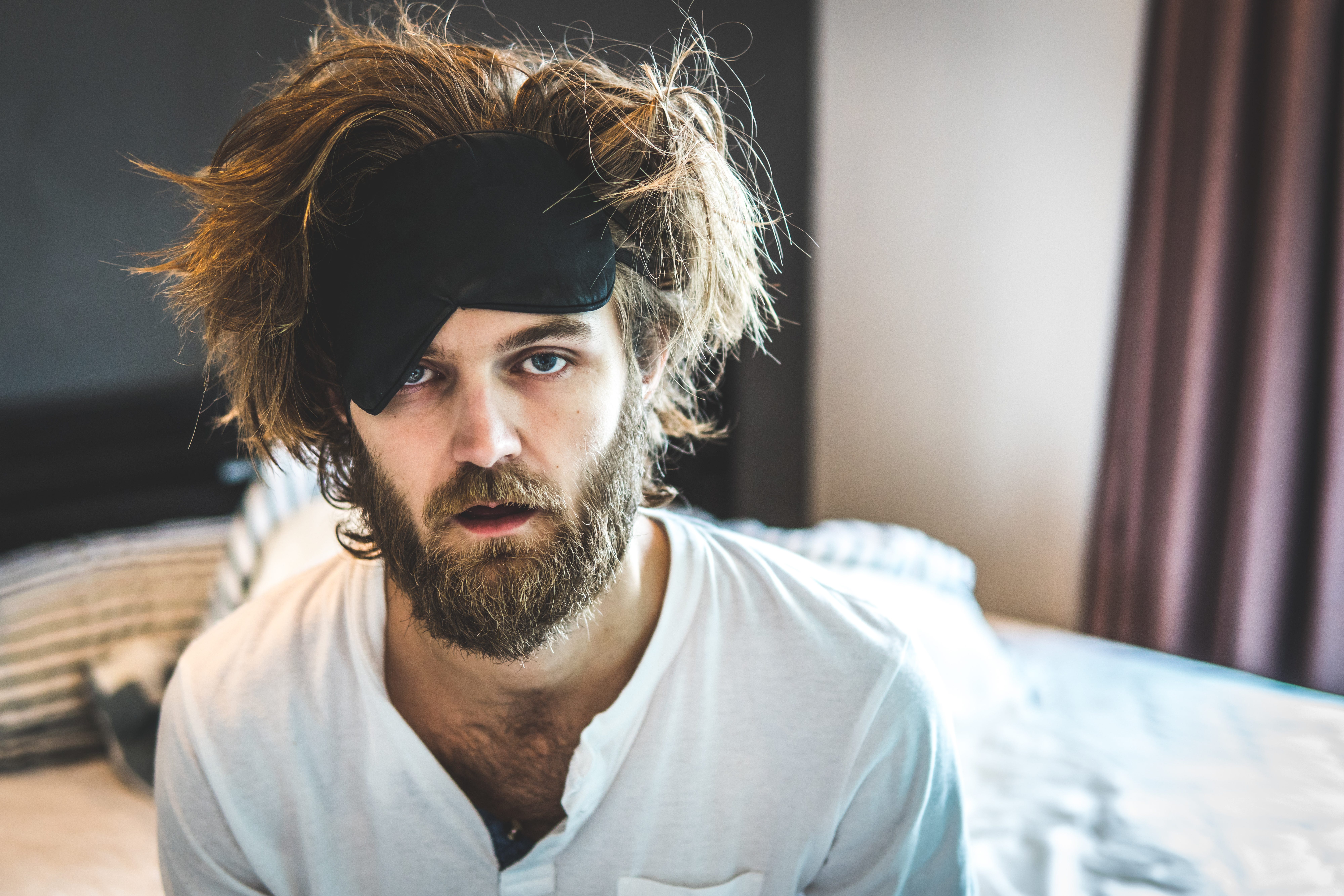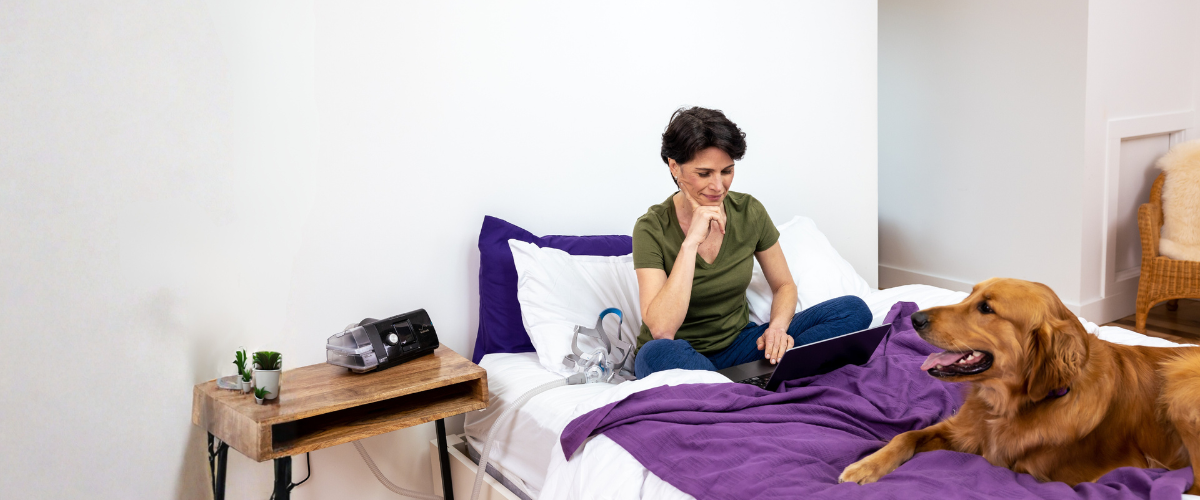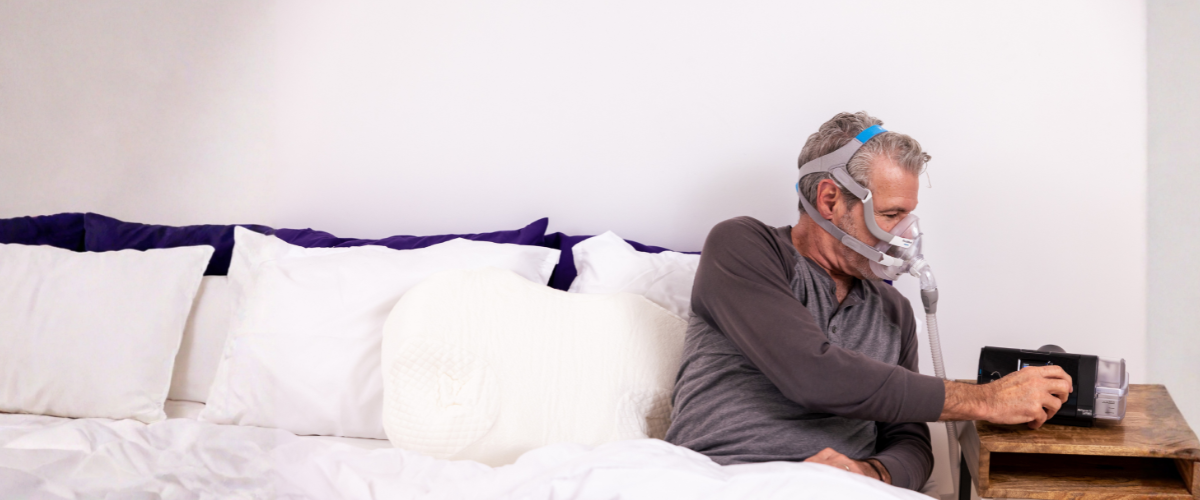Updated May 2023
Are you still snoring with CPAP? Isn't CPAP therapy supposed to resolve your snoring? Yes, your CPAP machine is supposed to treat sleep apnea and the snoring that results from it. If you're still snoring with CPAP, it could indicate that something is wrong. Let’s take an in-depth look at snoring to determine causes and solutions.
Is It Snoring Or Sleep Apnea?
While snoring is a common symptom of sleep apnea, those with sleep apnea don’t always snore and snoring can indicate a different issue. In fact, snoring is a common symptom of men with sleep apnea but not as much for women.
However, snoring does indicate a disruption in your sleep but it may not be as serious as disruptions caused by sleep apnea. Disruptions that are related to sleep apnea, if left untreated, can lead to high blood pressure, stroke and other conditions.
Don’t dismiss snoring as a normal part of aging. The difference between sleep apnea and snoring is how you feel during the day. Chronic fatigue and extreme sleepiness during the day are more indicative of sleep apnea.
Note: It’s important to see your doctor once you start snoring to rule out sleep apnea and other serious conditions.
Shouldn’t My CPAP Stop Me From Snoring?
In most cases, yes. If you’re still snoring after using your CPAP mask after several days, seek advice from your sleep specialist. Discuss your machine and mask brand with them for possible adjustments. Do not adjust your CPAP settings on your own.
CPAP stops snoring by delivering a continuous positive airway pressure to your airways to hold them open during the night. They prevent these muscles from collapsing, blocking air flow, and and producing the vibration that causes loud snores. As a result, your sleep remains uninterrupted and you can enjoy refreshing and restorative rest.
4 Reasons You're Still Snoring with CPAP
- The CPAP pressure might not be strong enough
- You may be a mouth breather. A full-face mask is ideal.
- There are air gaps in certain areas around the mouth, nose, and mask.
- Your sleep position may affect the function of the machine.
3 Ways To Stop Snoring With CPAP

- Check your CPAP air pressure – Contact your sleep specialist if you feel like your air pressure is too low. You might need a titration study.
- Change sleeping positions – Your sleeping position may be the cause of snoring. Sleeping on your back may prevent the air pressure in the machine from adequately clearing your airways. Sleeping on your side may be a simple solution.
- Check if you have the wrong CPAP mask. – Breathing through your mouth is a major concern for those who use a nasal CPAP mask. If you sleep with your mouth open the air will exit through the mouth instead of going through the airway. You may want to switch to a full face mask.
- Your sleep position or pillows may affect the function of the machine.
CPAP Tips
- Take the time to make sure your CPAP mask is clean.
- Your mask should have a snug fit, but it should not be too tight or cause pain. Adjust your headgear straps for a comfortable seal. There should be no air gaps between your mask and face.
- If you’re still having trouble, try selecting a CPAP mask of a different size. Some masks are specifically designed to fit a smaller frame, like the Quattro™ Air for Her by ResMed.
How To Stop Snoring
If your snoring is unrelated to sleep apnea there are a few snoring remedies you can try:
- Lose weight.
- Do not drink alcohol close to bedtime, it can cause your throat muscles to relax and collapse.
- Treat nasal congestion.
- Sleep on your side.
- Stay well hydrated to keep nasal secretions thin and prevent congestion.
- Avoid sleeping pills or allergy medications that could relax your throat.
- Elevate your head about four inches with pillows.
- Stop smoking.
In some cases, surgery may be needed to correct an anatomical obstruction causing you to snore.
Do You Snore?
Well, then you probably want to stop. Before trying a snoring aid be sure to contact your doctor to make sure your condition isn’t being caused by an underlying issue such as sleep apnea. In many cases, snoring is a sleep apnea symptom and the best way to receive proper airflow is by using a CPAP to ensure your body receives enough oxygen for proper rest.




